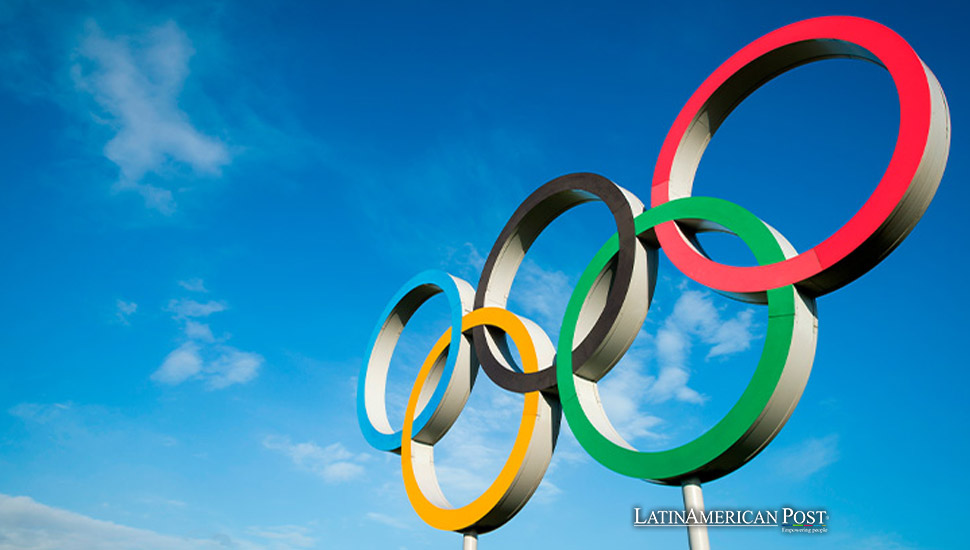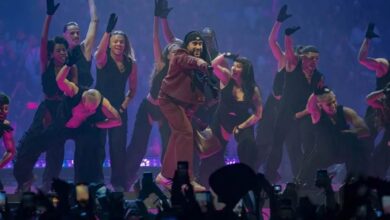Chile 2036 Olympic Bid: A Strong Contender with a Rich Latin Legacy

Chile is stepping up its efforts to host the 2036 Olympic Games, promising a “State commitment” to the International Olympic Committee (IOC). Building on its successful Pan American Games, Chile aims to join the ranks of Latin American Olympic hosts.
A State-Backed Commitment for Chile’s Bid
Chile is banking on its proven track record and government commitment to secure the 2036 Olympic Games. Chile’s Minister of Sports, Jaime Pizarro, made it clear in a recent exclusive interview with EFE that the government is entirely behind the country’s bid to host the event. He emphasized that the state will guarantee the infrastructure, logistics, and coordination needed to bring the Olympics to Chile.
Pizarro drew attention to the seamless coordination over multiple administrations during the country’s preparation for the 2023 Pan American and Parapan American Games, which involved years of planning and execution. “The State is the guarantor to ensure the infrastructure and organization for the Games are delivered as planned,” Pizarro said, reflecting confidence in Chile’s ability to execute such a massive undertaking.
This commitment builds on the success of Chile’s recent sporting events, including the upcoming 2025 Parapan American Youth Games and the 2027 Special Olympics World Games, both emphasizing inclusivity and accessibility. Chile’s long-term investment in sports infrastructure, such as the Paralympic Sports Center in Santiago’s National Stadium Park, underscores the country’s readiness to host world-class events.
Olympic Legacy From Mexico City to Rio
Chile’s bid to host the 2036 Olympics builds on Latin America’s rich history of hosting the Games, with memorable moments that have left an indelible mark on the world stage. Mexico City, in 1968, became the first Latin American city to host the Olympic Games, marking a pivotal moment in the region’s sports history. The games were memorable not only for their high-altitude challenges but for iconic performances, such as the revolutionary Fosbury Flop in the high jump by American athlete Dick Fosbury, which changed the sport forever. Another unforgettable moment came when American long jumper Bob Beamon shattered the world record with a leap of 8.90 meters—an achievement that stood for 23 years.
Brazil’s Rio de Janeiro followed in 2016, hosting the first Olympic Games in South America. These games presented significant logistical challenges but showcased Brazil’s ability to pull off a major global event. Rio 2016 also had unforgettable moments, such as Jamaican sprinter Usain Bolt winning his third consecutive gold medal in the 100 meters, cementing his legacy as one of the greatest athletes of all time.
Chile now aspires to continue this tradition of Latin American excellence by offering a distinct experience shaped by its unique geography and sporting culture. Pizarro and his team are drawing on lessons from Mexico City and Rio, focusing on delivering an Olympic Games highlighting the country’s diverse landscapes while addressing the logistical challenges head-on.
Leveraging Chile’s Sporting Infrastructure
One of the critical pillars of Chile’s Olympic bid is its ability to build on the infrastructure and expertise developed during the 2023 Pan American Games. Pizarro emphasized how hosting the Pan American and Parapan American Games gave the country invaluable experience managing large-scale events across multiple venues. “The Pan American Games saw three consecutive governments working together to ensure their success,” Pizarro noted, underscoring the political and institutional stability that gives Chile a competitive edge in the bidding process.
Chile’s natural landscapes and geographic diversity are central to the proposed Olympic bid. From the surf-friendly waves of Pichilemu to the tranquil waters of Laguna San Pedro in Biobío for rowing and canoeing, Chile offers unique and visually stunning venues for outdoor sports. Triathlon events, which have already gained prominence in locations like Viña del Mar and Pucón, showcase Chile’s existing capacity to host international competitions.
Furthermore, Chile’s bid significantly focuses on urban sports that appeal to younger audiences. Popular events like BMX freestyle, 3×3 basketball, and breaking, which drew large crowds during the 2023 Pan American Games, are expected to play a central role in the Olympic calendar. Pizarro sees this as an opportunity to elevate Chile’s global status by tapping into sports that resonate with younger generations and urban enthusiasts.
Logistical Challenges and Solutions
Hosting the Olympic Games is an enormous logistical challenge, but Chile’s government is confident in its ability to deliver. Pizarro acknowledged that managing the influx of athletes, officials, and spectators would be exponentially more demanding than the Pan American Games. Still, he expressed confidence in Chile’s transportation and infrastructure capabilities. One of the lessons learned from the 2023 Games was the effective use of Santiago’s Metro system to transport athletes and staff between venues, a strategy that could be expanded for the Olympics.
Chile’s Olympic bid also proposes a decentralized approach to hosting, with events spread across the country rather than concentrated in one city. This not only alleviates the logistical pressure on Santiago but also allows different regions of the country to share in the economic benefits of hosting the Games. “The territorial distribution of the events ensures that we can manage the logistical demands effectively while showcasing the best Chile offers,” Pizarro explained.
While the scale of the Olympics far exceeds that of the Pan American Games, Chile’s experience in hosting multiple international sporting events in recent years—such as the U-20 FIFA World Cup and the upcoming World Track Cycling Championship—has bolstered its confidence in managing large-scale events. These experiences have sharpened Chile’s ability to coordinate between various government agencies and international sports bodies, a skill that will be essential should the Olympic bid succeed.
A Bold Vision for 2036
Chile’s bid to host the 2036 Olympic Games represents more than just an ambition to organize a world-class sporting event; it reflects a long-term vision for the country’s role on the global stage. The Olympic Games would offer Chile an unparalleled opportunity to showcase its cultural richness, natural beauty, and sporting spirit to the world.
Chile’s Olympic dream is built on the foundation of its past successes, but it also looks toward the future, emphasizing sustainability, inclusivity, and innovation. Pizarro highlighted the country’s commitment to sustainability, ensuring that Olympic venues and infrastructure leave a lasting legacy that benefits future generations. For example, the Paralympic Sports Center in Santiago is not just a facility for elite athletes but also a symbol of Chile’s commitment to inclusivity in sports.
Hosting the Olympics would also provide a significant economic boost to Chile, driving investment in infrastructure, tourism, and jobs. Pizarro acknowledged that hosting the Games would require substantial financial resources, but he expressed confidence that the long-term economic and social benefits would outweigh the costs. “The experience of hosting the Olympics would bring international recognition and long-term benefits for our economy and society,” he said.
Also read: Acciona Energía Quits Chile’s Renewable Energy Group Over Industry Stalemate
Chile’s bold bid for the 2036 Olympics is part of a broader vision to position the country as a leader in global sports. Should the bid succeed, Chile will join the ranks of Mexico and Brazil, further cementing Latin America’s place in Olympic history. For now, all eyes are on the IOC as Chile, alongside other hopefuls, waits for the next step in the bidding process. The decision will be a pivotal moment for Chile, offering the chance to host one of the most prestigious global events and create new iconic moments in Olympic history.





